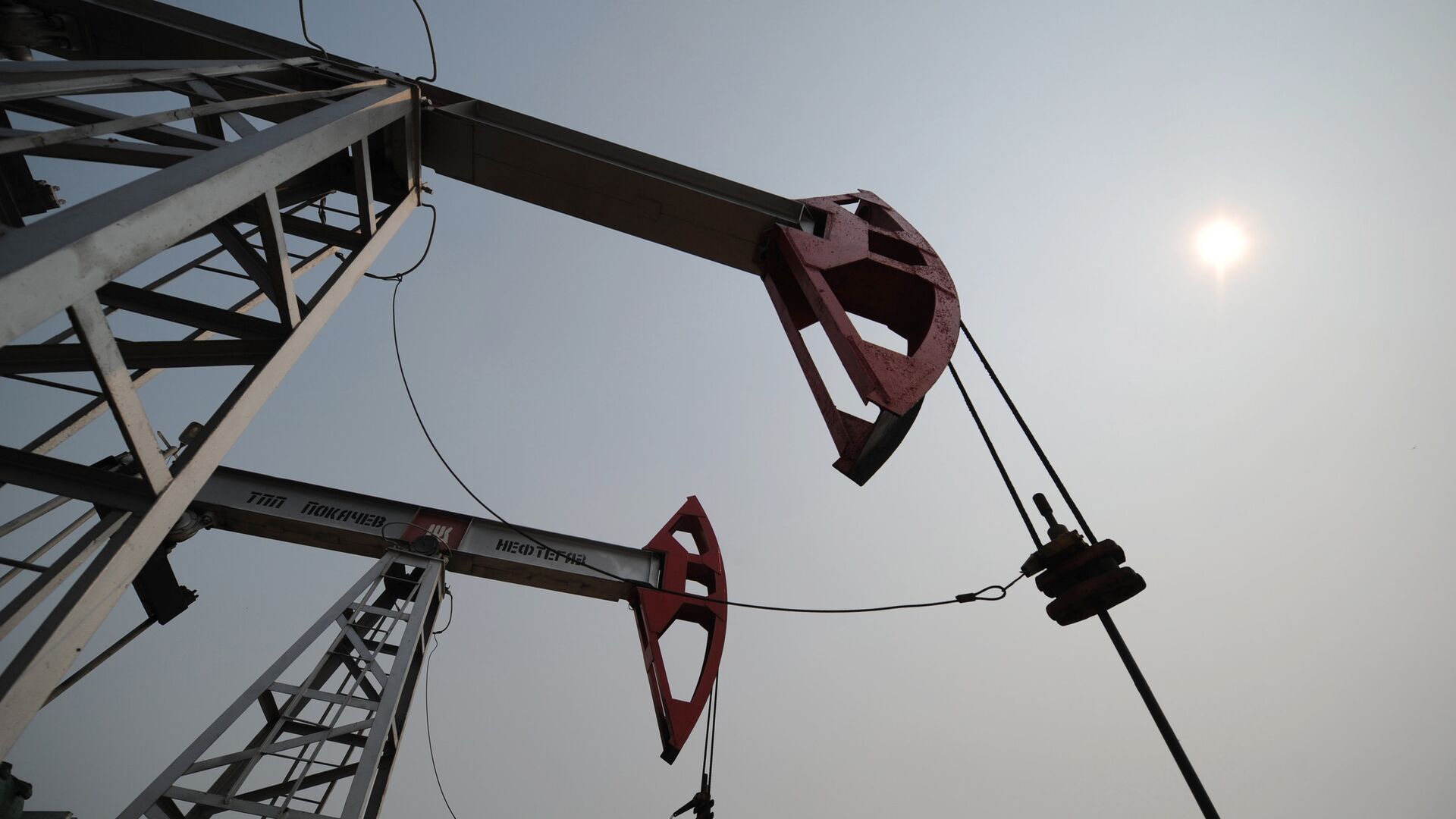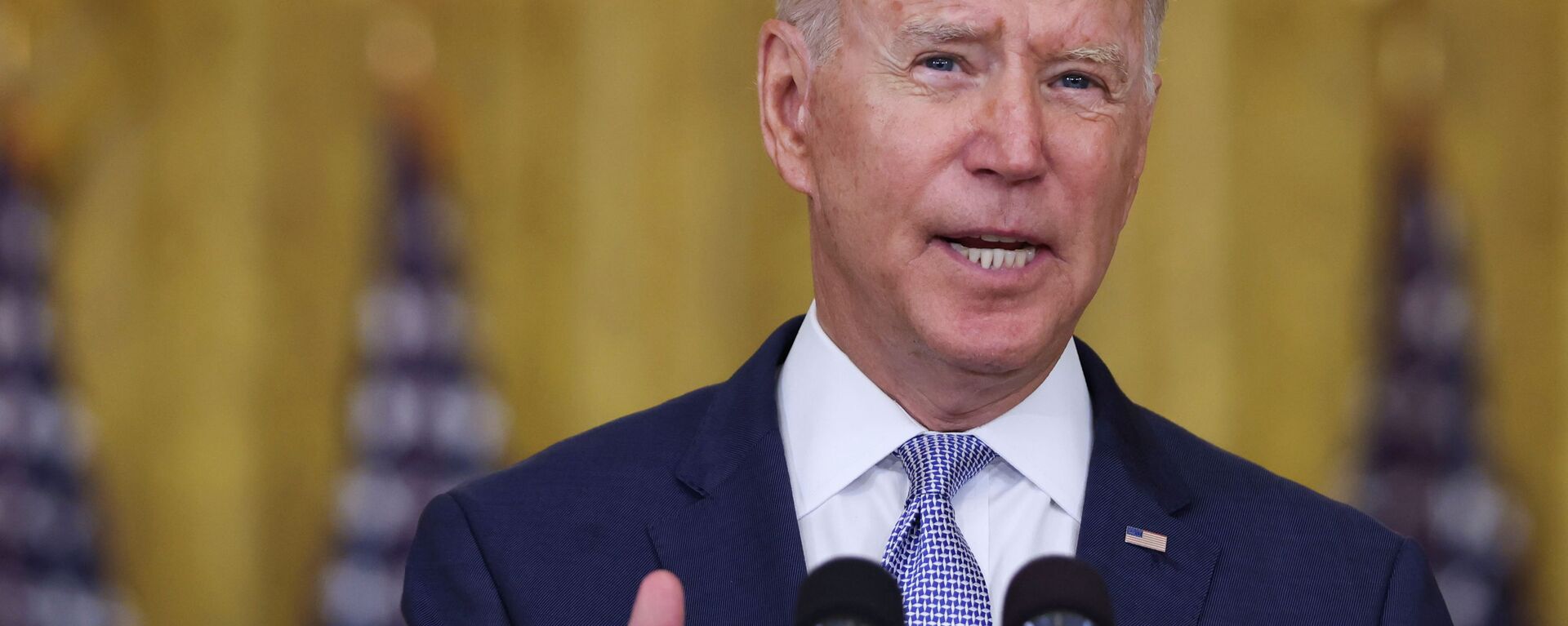Oil Market: What's Behind US-Russian Energy Ministers' Meeting on the Sidelines of COP26?
20:18 GMT 11.11.2021 (Updated: 14:22 GMT 15.11.2022)

© Sputnik / Iliya Pitalev
/ Subscribe
Russian and American energy officials on 10 November held a rare meeting during the COP26 conference in Glasgow, following years of US-Russia tensions over Washington's ongoing sanctions spree.
Russian Deputy Energy Minister Pavel Sorokin held a meeting with Deputy Secretary of the US Department of Energy (DOE) David Turk on the sidelines of the COP26 conference in Glasgow, the Russian Energy Ministry said in a statement on 10 November.
The two officials discussed multilateral cooperation within the G20 framework to further stabilize the world oil market. In addition, they exchanged views on relevant issues concerning the increase in global warming due to human-induced climate change.
🔻
— Russian Embassy in USA 🇷🇺 (@RusEmbUSA) November 10, 2021
🇷🇺🇺🇸 On November 10, on the sidelines of the UN Framework Convention on Climate Change in Glasgow (Great Britain), Russian Deputy Energy Minister Pavel Sorokin met with US Deputy Energy Minister David M. Turk.
🔻https://t.co/dEAKILpP0Y pic.twitter.com/tDluIvZ5XZ
The last face-to-face meeting between American and Russian energy ministers occurred on 13 September 2018, when then-Russian Energy Minister Alexander Novak held talks with his US counterpart, Rick Perry. The summit came roughly a year after then-President Donald Trump inked a multi-faceted bill called Countering America’s Adversaries Through Sanctions Act (CAATSA), targeting in particular Russia's Nord Stream 2 fuel pipeline project. During the 2018 meeting, Perry claimed that the Nord Stream 2 pipeline would "create a new choke point at a shallow depth vulnerable to disruption."
Responding to his counterpart, Novak said: "I believe we share the view that energy cannot be a tool to exercise pressure and that consumers should be able to choose the suppliers."
The Russian energy minister on 6 February 2020 discussed bilateral energy cooperation with the US ambassador to Russia, John Sullivan, as Washington stepped up its sanctions spree against Russia and the Nord Stream 2 gas pipeline. Novak underscored at the time that US sanctions "restrict development of mutually beneficial cooperation, and are an example of unfair competition."
The most recent meeting between Sorokin and Turk prompted lively debate among energy observers. OilPrice.com suggested that the event indicates that the Biden administration "is actively looking for ways to boost oil supply after direct pleas and demands to OPEC+ failed to yield anything productive."
Soaring US energy prices for American consumers have prompted controversy since the beginning of the Biden presidency. In August 2021, Biden urged OPEC+, a conglomerate of oil-producing countries, to step up oil output to lessen petroleum price tags of the end-user. The US president's calls appeared to have raised OPEC+ members' eyebrows as oil-producing countries had already begun a gradual increase to their output at that time.
The US president immediately came under heavy criticism from both American conservatives and progressives. Republicans claimed that soaring gasoline prices are the direct result of Biden's domestic policies, including his continuation of the shut down fo the Keystone fuel pipeline. Democrat environmentalists accused Biden of betraying the "green" agenda through the encouragement of fossil fuel production in the face of climate change.
Biden recently asserted to the press that his administration has ways to deal with soaring energy costs, but did not specify what those ways were. Meanwhile, energy prices and inflation continue to rise. According to Bloomberg, the increase in oil and gasoline prices threatens America's economic rebound and "poses a political risk" to the US president, whose options to slow the surge are "limited."
Meanwhile, roughly a dozen Democratic Senators called upon Biden on 9 November to consider tapping the country's emergency oil reserves or even resort to banning oil exports in order to fight surging energy prices, according to CNN.
It appears that Washington is trying to convince OPEC+ members through direct one-on-one meetings, suggests OilPrice.com, referring to a prior to meeting with Russian counterparts in which US officials discussed oil markets with Saudi Arabia. Reportedly, Washington unsuccessfully tried to convince decision-makers in Riyadh to boost crude production.
Brent crude has jumped over 60% in 2021, hitting a three-year high of $86.70 on 25 October. Currently, oil prices are fluctuating around $83 per barrel, while Goldman Sachs analysts believe that Brent will end the year at $90 per barrel and will stay high over the next few years.
OPEC is seemingly unwilling to step up production. The international entity projects in its monthly report that oil demand will average 99.49 million barrels per day (bpd) in the fourth quarter of 2021, down 330,000 bpd from the organisation's October forecast.
"A slowdown in the pace of recovery in the fourth quarter of 2021 is now assumed due to elevated energy prices," OPEC stated.




